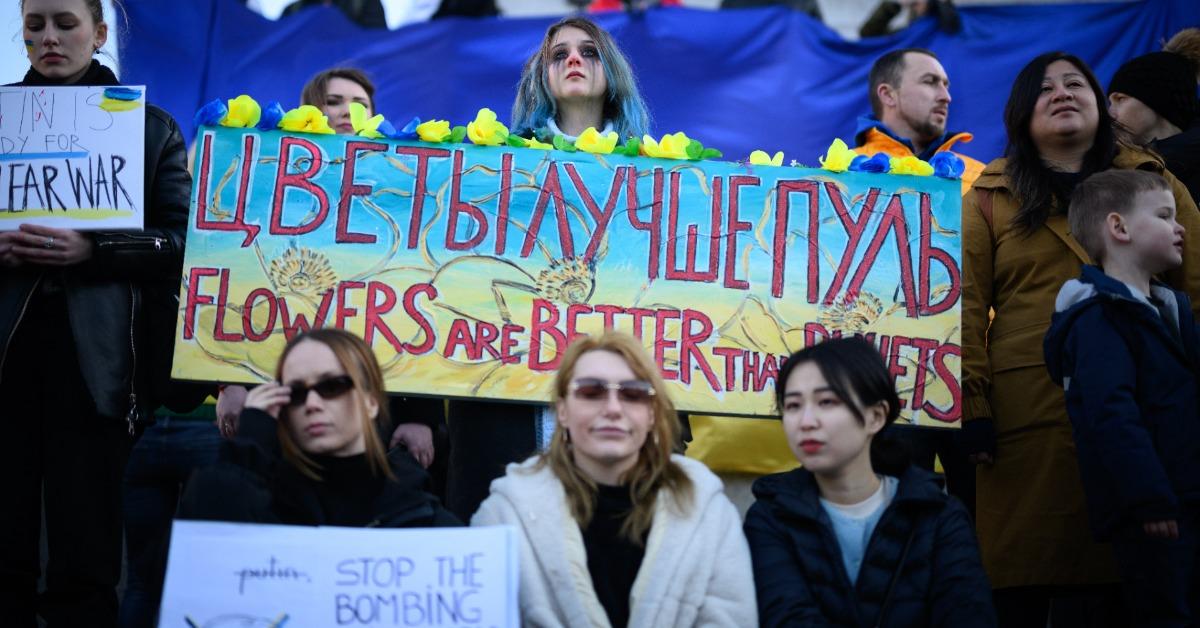Protesters Are Writing "Het Bonhe" on Signs to Express Their Anger With Russia's Military Aggression
Published Feb. 28 2022, 12:15 p.m. ET

The conflict brewing in Eastern Europe between Russia and Ukraine, which marks the first conflict of its scale to take place on the continent since World War II, has captured the entire world's attention. Russia's aggression towards its neighboring nation has prompted outcries from every other corner of the globe, with most protesting the war in its entirety.
Anti-war protests and rallies have been springing up everywhere, from small towns in the U.S. to the heart of Moscow, and their message is clear: No more war. One particular phrase seems to have taken hold among Russian protestors opposing the Kremlin's advances: "Het bonhe." What exactly does the phrase mean? Keep reading to find out.

What does "Het bonhe" mean?
As protests have ramped up against Russian aggression in Ukraine, some common threads have emerged among protestors — namely, people of all backgrounds have been calling for an end to the war. This was exemplified mainly by protests held on Russia's mainland, per ABC, where citizens, angry with their government's actions, took to the streets with signs that read "нет воине," or "Het bonhe," as many online have interpreted it.
The translation of this Russian phrase is "No war," per World Stock Market.
Despite knowing that protesting so could result in beatings and arrests, countless Russian citizens have taken to the streets to demand an end to the war in Ukraine. Virtually all of these protests have ended in thousands of arrests by police, with the total number reported at 5,794 arrests by the end of Feb. 27, 2022, according to Wikipedia.
These protests have seemingly spanned from St. Petersburg to Siberia, and according to ABC, the Kremlin has sought to downplay the number of Russian citizens opposing the war effort. On top of that, Putin and other Russian officials have doubled down both domestically and abroad on their propaganda that the invasion of Ukraine was — as Putin put it — an effort to "de-Nazify" the country, despite the fact that Ukraine has a democratically elected president.